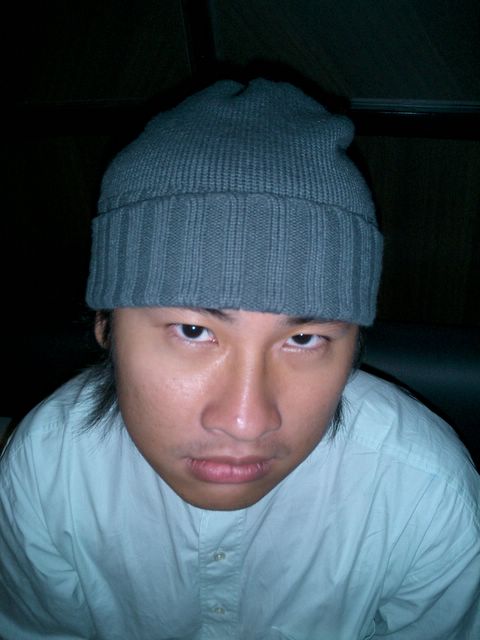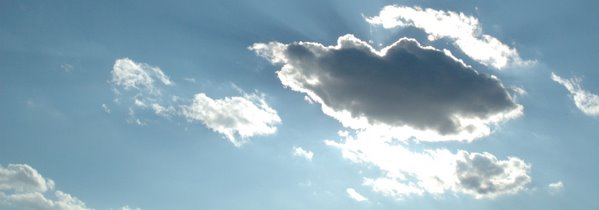When I came over to the United States and looked at how religion bled unhealthily into the society here, it made me reflect on the policies in Singapore. I suddenly realized how secular a society that Singapore is, and that a lot of our policies were aimed at creating a secular society. It then occurred to me that whoever was in charge of running our government must be a secularist (or an atheist?) and took extra steps into ensuring that religion does not mix with politics, even though sometimes you are accused of violating human rights.
One thing that came into my mind was the tudung incident a few years back when Chee Soon Juan accused the government of violating human rights because MOE refused to back down from allowing the Muslim girls from wearing tudungs in school. At that time, I was kind of nonchalant about the incident, but seeing how religion corrupts education in the Unites States (think of the debates regarding teaching creationism in school), I realized that the government back then had made a correct decision, and that Chee Soon Juan is a huge dick (not that I am not aware of that from other antics that he has pulled in the past).
Recently, I came across this newspaper report in the Straits Times where MM Lee was talking about dealing with religious difference in Singapore, and I cannot help but think that he is either an atheist, or a very pragmatic secularist. Just read what he says, and you tell me that this is the words of someone who is very religious? I don't think so.
===================================================================================
Oct 15, 2007
'Unusual steps' needed to get people to gel
MM: Policies like GRCs, ethnic quotas needed because of heterogeneous mix
By Li Xueying
SINGAPORE has had to take 'unusual steps' to get to where it is today - a society of people who gel despite their heterogeneous mix.
Minister Mentor Lee Kuan Yew said this last night as he explained the rationale for policies such as the group representation constituencies (GRCs), ethnic quotas in public housing estates, and the use of English.
A delegate at the International Bar Association had asked if Singapore's 'amazing' achievements were due to the fact that the country was 'not so democratic'.
Responding, Mr Lee gave an account of the Singapore Story to the audience of international legal practitioners, while making clear that he did not 'speak of this as a model. I speak about how Singapore got where it is'.
Any society which wants to move forward needs a certain cohesion, he said.
Singapore began as a society of migrants of different races who lived separately, spoke different languages, and who intended to return to China, Indonesia or India.
'So we were like different kinds of fishes in an aquarium, each with different salinity that would occasionally meet at the edges,' he said.
What the Government did, among other things, was to make English the common language, and it got people to physically interact through the ethnic quotas in the public housing programme. 'We rebuilt the city and did not give anybody any choice of who their neighbour would be.'
While of 'great discomfort' for many years, it helped the races to eventually accept each other as one community.
'If we had not done that, today we'll have a big terrorist problem,' he said.
And to ensure minority representation in Parliament, GRCs were created.
'Are these democratic procedures?' he asked. 'My opponents say they are not because they can't find good minority candidates because they are not likely to win.
'So, therefore, should I abandon it and have no minority candidates?'
Rankings by groups such as Amnesty International cut no ice with him.
'I do not measure myself by the yardstick of Amnesty International... I measure myself by the objective of governance of my people. What must a government do? They must establish a system and there's peace, stability and opportunities for everybody to live a full life - which means good health, good housing, good jobs, good education, good hospitals,' he said to applause.
And while Singaporeans 'have access to all information', he said, 'we do not allow certain subjects to be made bones of contention'.
Globalisation meant that what happened in one country could become a world issue, he noted, citing the Danish cartoons of Prophet Muhammad that angered the Muslim world.
'It's a clash of civilisations. I'm not sure that we can avoid this. I'm not saying that because... mad fundamentalists threatened us with death and destruction, we must retreat.
'But I believe it is practical and sensible not to be offensive. Live and let live. They want a good life, we want a good life. They want to do it their way, pray five times a day, live a certain way of life, well, so be it.'
This, Mr Lee added, is 'a problem which we are facing with increasing difficulty'.
He recalled going to college with Muslim friends who shared his food. But today, they are concerned not just about food, but whether the same dishwasher is used.
He recounted going campaigning with a Muslim ex-minister: 'He'd drink beer, I'd drink beer. He'd have a whisky, I'd have a whisky.' But four years ago, at a dinner, when Mr Lee offered him wine, 'he looked around and held up his hands and says, 'No, thank you''.
There was also an increasing number of madrasahs, where Malays were sending their daughters, while sending sons to secular schools.
'That's going to cause trouble,' he said. 'Do we stop it? If we can, we would. But will we have trouble? Yes, of course.'
So to 'put a damper on it', students were required to also pass in English, maths and science.
So 'starting from a heterogeneous base trying to get this mix to gel, you have to take unusual steps and procedures that have enabled us to get this far', he said.

世界在破晓的瞬间前埋葬于深渊的黑暗
Subscribe to:
Post Comments (Atom)






No comments:
Post a Comment